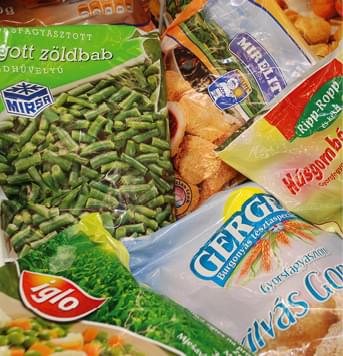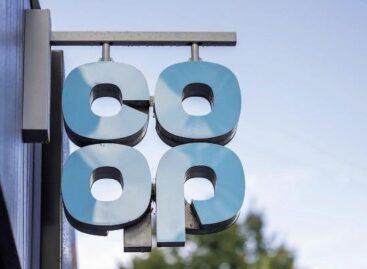Frozen food brands are looking for added value
Just like previous years, 2012 was all about the expansion of private label and cheap products on the frozen fruit/vegetable and frozen meals market.
László Markovits, owner and managing director of Mar-Ne-Váll Kft. told Trade magazin that discounters profited from the economic recession and by now private label products have become as important a tool in the hands of retailers as branded products. He thinks the problem is that there is no medium segment among consumers, therefore there is no one to try exciting new innovations. When innovating, his company takes into consideration that health consciousness will be a stronger trend in the future, which means that frozen products may have an advantage over food products preserved using other methods. Due to the constant growth in base material prices, production costs keep augmenting but manufacturers can’t increase prices as much as they should if they want to make up for their loss. MIRELITE MIRSA Zrt. director Dr Adrienn Losó is of the opinion that last year wasn’t a successful one for frozen products on the domestic market, but frozen pea and corn export sales were outstanding. For her company the domestic market is of utmost importance, so under the MIRELITE brand name – relaunched last year – it is present in stores in five frozen product categories. Ardo Hungary Kft. managing director Mirtill Németh informed our magazine that last year they performed best in the Horeca channel, where restaurant owners try to keep their guests by offering them quality products. She added that in retail it is very difficult to build a premium brand as private label products dominate. What is more, a growing number of people grow fruits and vegetables and freeze them themselves at home. ARDO’s answer to the trend of the meat-free diet is breaded vegetables and vegetable burgers. In 2012 Gergely Gasztronomi Kft. held on to its position and its branded products were even able to increase sales – we learn from owner Dr Valéria Gergely. Plum Dumplings is still their most successful product but Curd and Plum Jam Pasta Pockets also do well. At the end of 2012 the company introduced gluten-free Plum Dumplings and Plum Jam Pasta Pockets, while in 2012 they put the Giant Dumpling product line on the market: XL-sized dumplings with double filling, in many flavours. Iglo, one of the most important premium brands on the market was successful in 2012. They realised small volume growth on the market of frozen vegetables, but value sales dropped a bit. The latter is the result of the appearance of cheaper, larger size, mainly budget products. All in all, Iglo managed to preserve its market share. In the fist half of 2013 they will try to attract those consumers with ‘plus 20% for free’ promotions for whom prices may be too high but now this more economical offer may persuade them to try high quality Iglo products.
Related news
Related news
ESG – about sustainability standards, from a legal perspective
Since December 2023 several pieces of legislation have been published…
Read more >DairyX makes a breakthrough in dairy-free casein production
Israeli start-up DairyX Foods has made great progress in the…
Read more >Co-op uses AI to fight GBP 40m losses in the UK
British supermarket chain Co-op is using AI technology to detect…
Read more >






